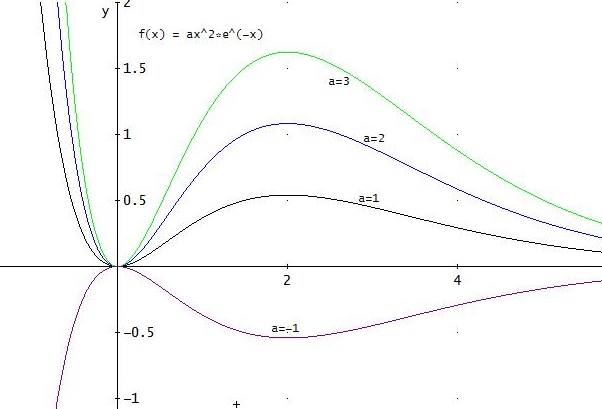f(x) = (ax² + bx + c) • e-x
Produktregel:
f '(x) = - e-x ·(a·x2 - 2a·x - b + c)
Bedingungen:
f(0) = 0 → c = 0
f '(0) = 0 → b = 0
also:
f(x) = a·x2 · e-x
f '(x) = - e-x ·(ax2 - 2ax )
f '(2) = 0 ⇔ - e-x · (4a - 4a) = 0 → a beliebig
f '' (x) = ax ·e-x ·(2-x) muss wegen des Hochpunkts bei x = -2 dort eine Vorzeichenwechsel von + → - haben, also muss a positiv sein.
→ f(x) = a·x2 · e-x mit a > 0.
Zur Verdeutlichung:

Gruß Wolfgang